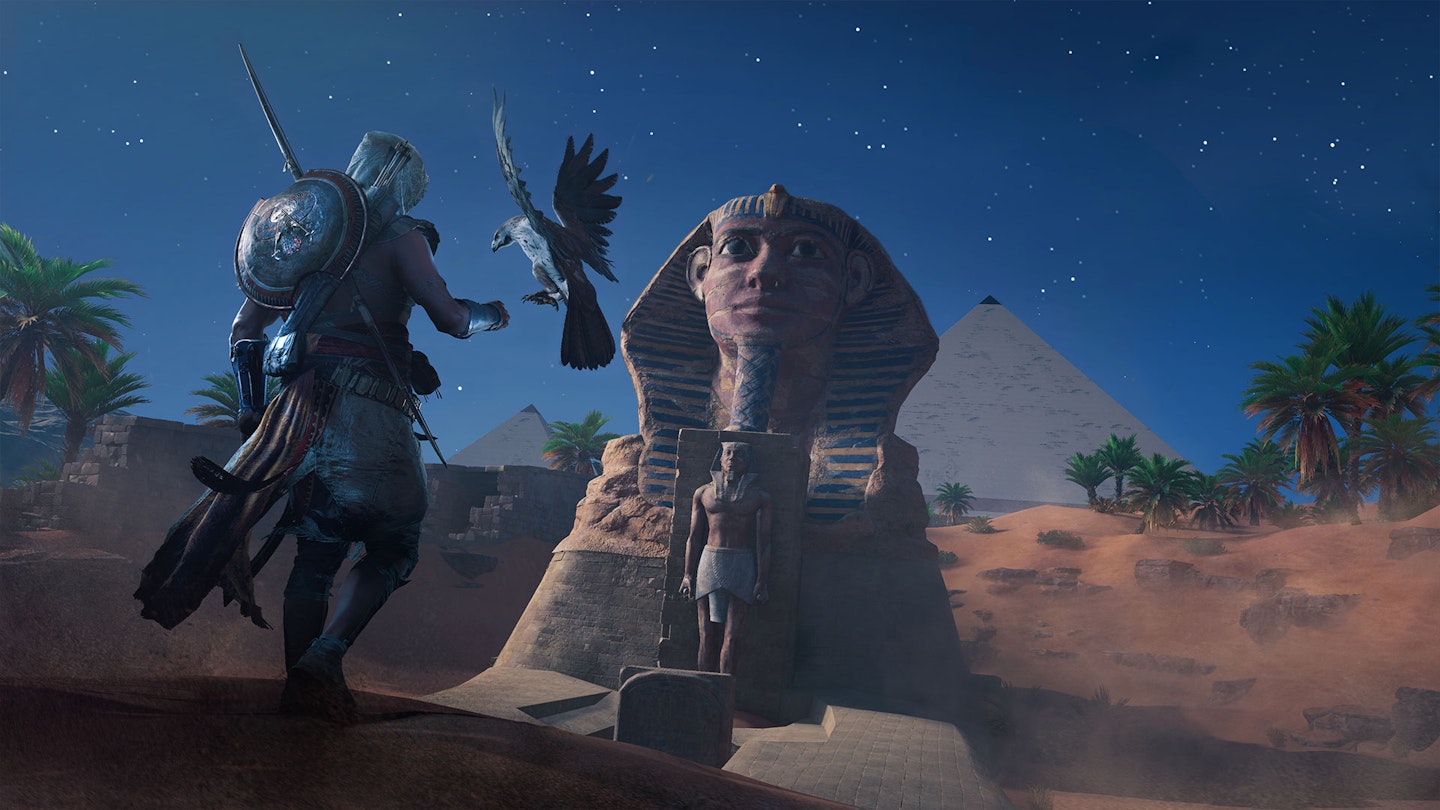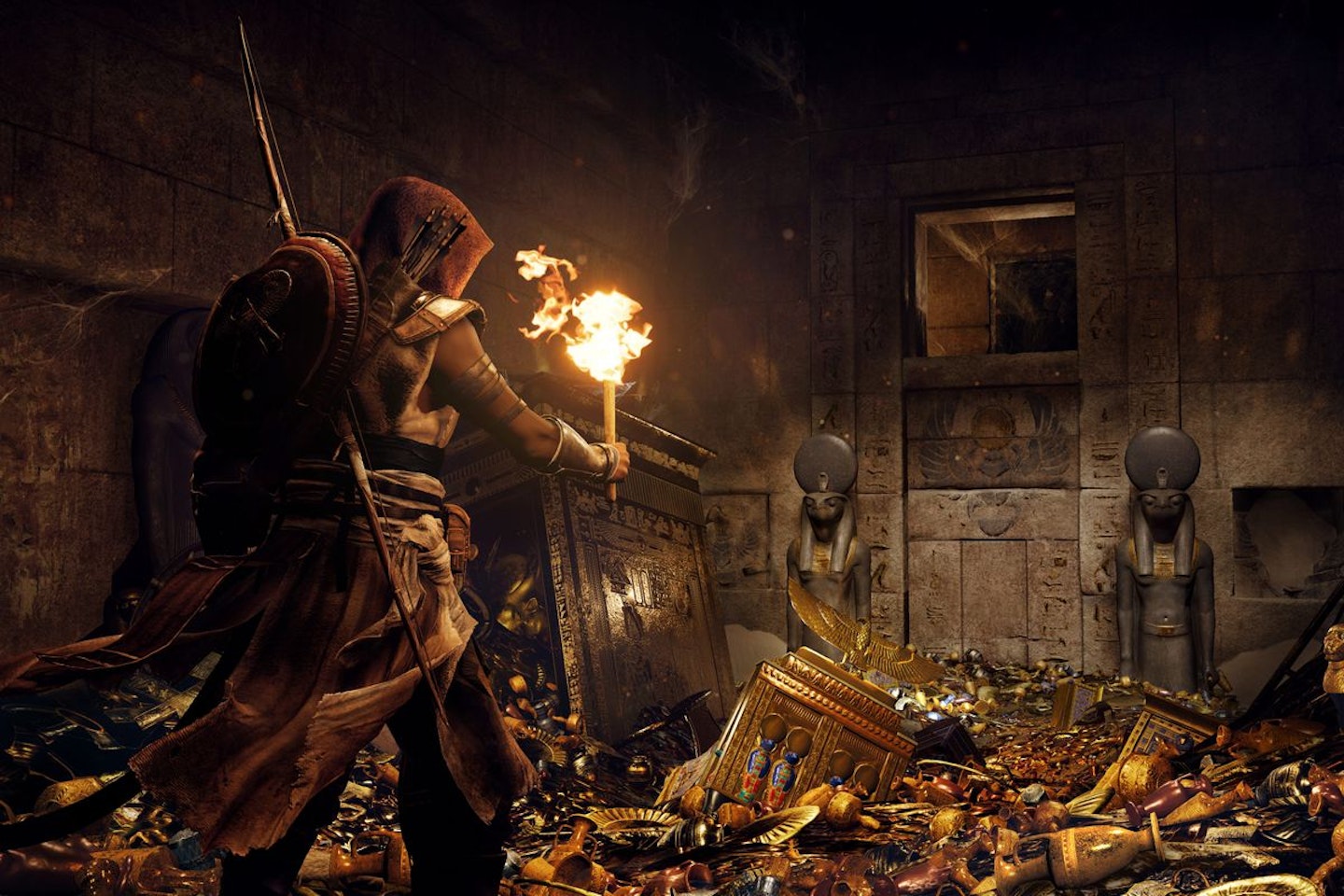Assassin’s Creed has taken us from the Holy Lands in the 12th Century, through Renaissance Italy, the American war of Independence, Revolutionary France and Victorian England. It’s been quite the tour, taking in 900-odd years of world history and introducing us to some of mankind’s most interesting figures — Leonardo da Vinci, Charles Darwin and Donatien Alphonse François (you’ll know him as the Marquis de Sade).

For Origins (and the clue’s in the title) we’re going back further than we’ve ever been before — to Egypt, 50 or so years before the birth of Christ. The temptation to call this “Ancient Egypt” is wide of the mark. The great civilisation Egypt used to be was all but over after Alexander the Great conquered it in 332 BC. By the time of Bayek (Origins’ main character — no Ezio or Evie Frye, but better than III’s dreary Connor) the pyramids are over 2,000 years old. This is an Egypt unsure of its future, ruled by Ptolemy XIII who faces a coup led by Cleopatra, which would bring a dynasty to a close. It’s an incredible place to spend time in, vast, mountainous and, especially considering Egypt is mostly a desert, teaming with life. Both human and beasts.
Combat has more in common with the likes of Bloodborne than, say, the Batman Arkham games.
Assassin’s Creed usually delivers on that front. The previous game, 2015’s Syndicate, was a perfectly decent game elevated by its recreation of Victorian London. But for Origins, perfectly decent would no longer cut it. Ubisoft rested the franchise for a year to give the team a chance to rethink what an Assassin’s Creed game was, and could be. The hope was that we’d see a leap of quality comparable to the improvement between the first and second games. Sadly, that hasn’t quite happened.
The biggest change the development team has incorporated is a more overt move towards an RPG. Levelling up has long been a part of the franchise, but now your progression through the game is gated. Wander somewhere the game doesn’t want you to and the over-powered wildlife will make short work of Bayek — and not hippos or crocodiles, even the most apparently inconsequential creature can take you down if it attacks. As is standard with such RPGs, crafting mechanics have also been added, as have loot drops. And while there’s a lot to like about this change, it does add grind to the game as side quests become necessary for you to level up enough to progress.

Combat has also been updated, requiring you to lock onto enemies you want to attack (you can cycle through them if there’s a group) then unleash light or heavy attacks, while dodging or parrying theirs. It has more in common with the likes of Bloodborne than, say, the Batman Arkham games, and requires more skill to master. Just learning a couple of moves and repeating them will get you killed.
While the game isn’t a massive leap forwards for the series, it is better. And a good starting point for the next game to build. Wherever, and whenever, that may be.
.jpg?ar=16%3A9&fit=crop&crop=top&auto=format&w=1440&q=80)